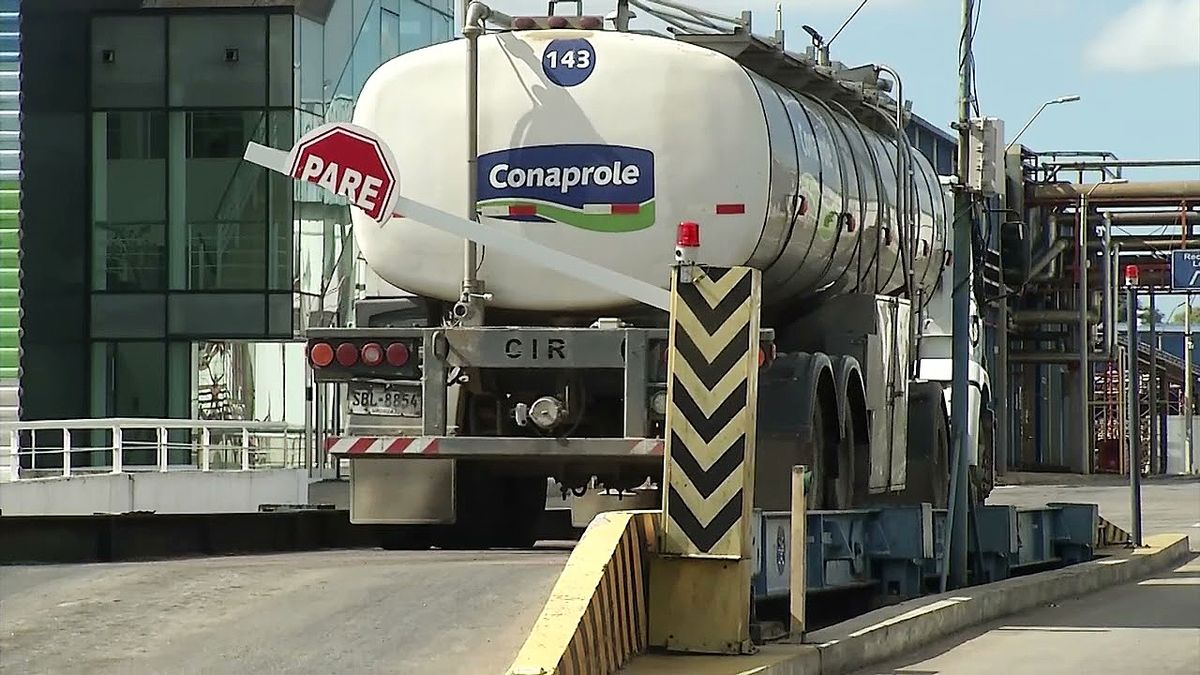Conaprole closed its 2022/23 fiscal year with a record turnover of 1,305 million dollarsaccording to the accounting balance that dairy cooperative presented before the Central Bank of Uruguay (BCU). This figure represents an increase of $129 million compared to the previous high for the 2021/22 financial year.
Despite not having been the best year for the dairy industry, between the historic drought and lower exports to some relevant destinations, Conaprole managed to once again surpass the historical income and the record held in the previous year of 1,176 million dollars invoiced.
This was possible, on the one hand, because the export income They increased by about 20 million dollars last year – ended July 31 -, totaling 685 million dollars. Also, the Internal market It increased its turnover by 120 million dollars, reaching the full figure of 668 million dollars. At the local level, it was fall in the exchange rate —quite pronounced during the first half of 2023— which played in favor of achieving greater income in dollars.
Regarding the disbursement to producers, the total was 651 million dollars for the milk remission of its partners.
The balance is not so positive when looking at the Profits or reported profits: these were reduced to less than half of what was obtained during the previous year, from 141 million dollars to 58 million dollars in 2022/23.
In turn, the cooperative’s gross profit fell from 262 million in 2021/22 to 203 million dollars during the last year. He Income Tax (IRAE) what did you pay Conaprole It was also lower, totaling $82 million.
A difficult time for the dairy sector
He milk sector of Uruguay is going through a difficult moment that, it seems, could become even more complicated with the upcoming scenario: the tax modifications in Brazil —with the aim of stopping milk imports from the countries of the Mercosur and encourage the local sector—, added to the fact that placements in this area in China They cannot recover, and in August fell 11% year-on-year.
Exports have been falling on a general level – September was no exception -, particularly with China, whose prices do not rise even after a certain economic reactivation following the impact suffered by health policies around Covid-19. This is also observed in terms of milk exports from Uruguay to the Asian country, which were 246,922 tons in August compared to 276,912 tons in the same month in 2022, as reported by Blasina y Asociados.
This represents a drop of 11% in terms of volume placed. Considering the value of the products, the drop was 20%.
By products, those with greater volume, such as powdered milk, fluids and whey, fell; while those of lesser relative importance showed increases.
Meanwhile, the federal government of Brazil decreed a tax measure seeking to try to stop imports of milk from the countries of the Mercosurbased on the modification of the tax benefits enjoyed by dairy importing establishments, originally created to encourage internal competitiveness.
In the coming days, the decree that changes the tax incentives granted to agroindustries, cooperatives and dairy sectors, which participate in the Mais Leite Saudável Program (PMLS), of the Ministry of Agriculture and Livestock (MAPA)as reported by O Globo.
The current rule establishes that companies that are part of the program can take advantage of up to 50% of the presumed PIS and Cofins credits, in relation to the purchase of milk to producers to reduce other federal taxes, or to receive a cash refund.
Source: Ambito




